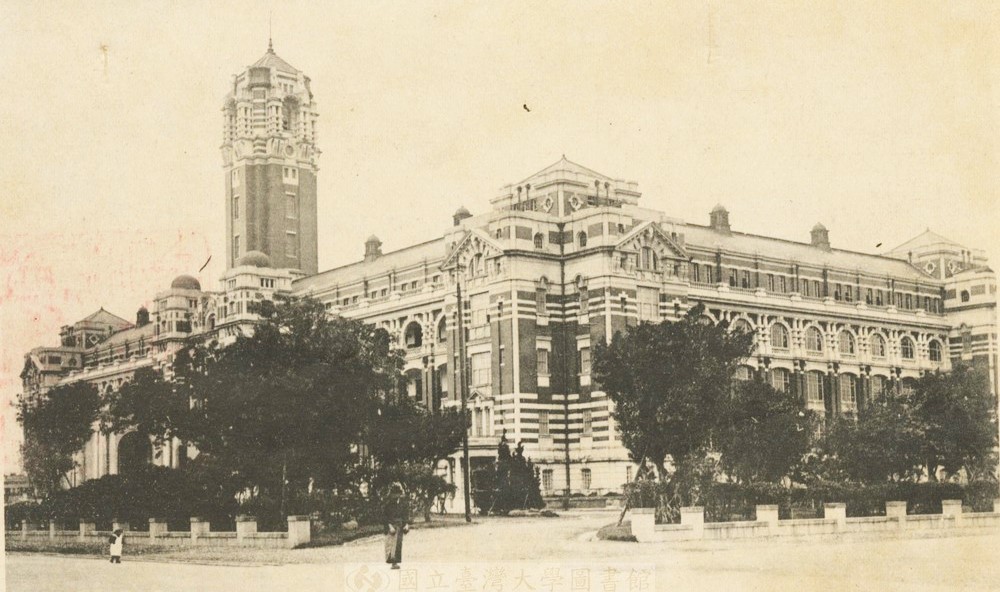Cambridge Archive: East Asia
Between 1841 and 1970, the British Empire’s firsthand, secret, diplomatic correspondence regarding Taiwan, China, Japan, Korea, Straits Settlements (Singapore, Malaysia), and Vietnam is meticulously documented in the ‘Cambridge Archives.’ This exclusive and invaluable archive, now declassified and digitized, offers insight into how the ‘Empire on which the sun never sets’ recorded significant historical events in these nations during its zenith. The following are select highlights from these exclusive and precious records.
Taiwan (1861 – 1960, 10 Volumes, 7000 Pages)
The periods spanns Qing Dynasty rule, Japanese colonialism, and the era of the Republic of China, detailing the tense cross-strait relations:
- In 1950, the United States Seventh Fleet patrolled the Taiwan Strait
- Records of the Mudan Incident of 1874-1875
- Overviews of Taiwan general situations and commercial information of Tamsui during 1861- 1895
- Commercial reports from Taiwan during 1896-1941
- Regular economic reports
- Japan’s annual national reports, including a section on Taiwan
- Annual political reviews of Taiwan during 1953 – 1965

China (1911 – 1970, 14 Volumes, 8770 Pages)
Contained within periodicals or ad hoc reports by British diplomats and regular news summary reports and propaganda materials are records of events such as Yuan Shi-kai’s self-proclamation as emperor, the Warlord Era, the Sino-Japanese War, the Chinese Civil War, China’s foreign relations after the establishment of the People’s Republic of China, border disputes, domestic issues, the Great Leap Forward, the Cultural Revolution, and the heightened Sino-Soviet tensions during the Cold War between the United States and the Soviet Union.
- Report on the negotiations between the Chinese Communist Party (CCP) and the United States in 1951
- Report by British diplomats on Mao Zedong and other leaders in 1939
- Report on Chiang Kai-shek’s efforts to pacify the southern region after Sun Yat-sen’s death
- The ‘Rustication’ of Urban Youth
- The National People’s Congress of 1963
- The 1967 mob attack on the British Consulate in Shanghai and its closure
- The Chinese Communist Party’s crackdown on the Red Guards in 1968

Shanghai (1842 – 1943, 18 Volumes, 14500 Pages)
From the opening of Shanghai as a treaty port in 1842 to the signing of the Sino-British Treaty of Equal Treaties in 1943, this period encompasses firsthand documentation of significant events in China and East Asia, records of political and economic developments, and the state of Shanghai’s development.
- Shanghai’s annual land regulations
- Business records of The British in Shanghai
- Negotiation records of the May 30th Massacre
- The charter issued by the U.S. government on June 25, 1863
- Court records from the Shanghai Concession
- Relevant statistical records within the concession

Hong Kong (1841 – 1941, 6 Volumes, 3000 Pages)
From the cession of Hong Kong to Britain in 1841 to the Japanese occupation during World War II in 1941, this period encompasses previously restricted colonial reports circulated exclusively within the British Parliament, administrative records of the Hong Kong government, periodic colonial reports, and the first-ever publicly published overview report of the British Empire’s colonies.
- Prospectus of HSBC from 1864
- Annual Major Business Reports
- Reports on Opium Trade and Consumption Conditions
- Meeting Records of the China Medical Missionary Association and the Hong Kong Branch of the British Medical Association in 1925
- Establishment and Development of the Hong Kong Chamber of Commerce, and Its Relationship with the Qing Dynasty Customs
- News Records of Hong Kong’s Reaction to Sun Yat-sen’s Passing

Straits Settlements (1855 – 1941, 12 Books, 7850 Pages, 6 Maps)
The collection includes analytical documents and Blue Books from the British colonial government, as well as records of the colonial government’s formulation, assessment, and recollection of colonial regulations.
- Annual reports from the Indian Imperial Government on the region
- Annual Blue Book reports from the local colonial governments
- Meeting records of colonial government and local council sessions

Japan (1906 – 1970, 14 Books, 9500 Pages)
After the Russo-Japanese War, the passing of Emperor Meiji, the Kanto earthquake, colonial rule over Taiwan and Korea, expansion in China, the events leading up to World War II and the Allied occupation, Japan’s economy resurgence in the 1960s.
- The British assessment report on Japan’s fiscal capacity to support its military expansion during the 1930s
- The British assessment report on Japan’s recovery capacity for the ten years following World War II
- Daily development reports on post-war trade and association organizations

Korea (1882 – 1970, 14 Volumes, 10000 Pages)
The developmental history of the Korean Peninsula starting from 1882, including firsthand accounts of the Korean Peninsula’s situation by British diplomats stationed in Seoul, Beijing, and Tokyo. This collection comprises regular monthly reports, ad hoc reports on significant events, supplementary reports, and confidential documents and analysis reports from the London Foreign Office.
- British records regarding the Assassination of Empress Myeongseong caused by Japan in 1895
- British records of the Second Japan-Korea Treaty in 1905
- British records of the announcement by Li Shengwu of the establishment of the Provisional Government of the Republic of Korea in 1919
- A briefing on Korea’s situation circulated within the British Parliament in 1950
- A special report following the execution of An Jung-geun who assassinated Ito Hirobumi

